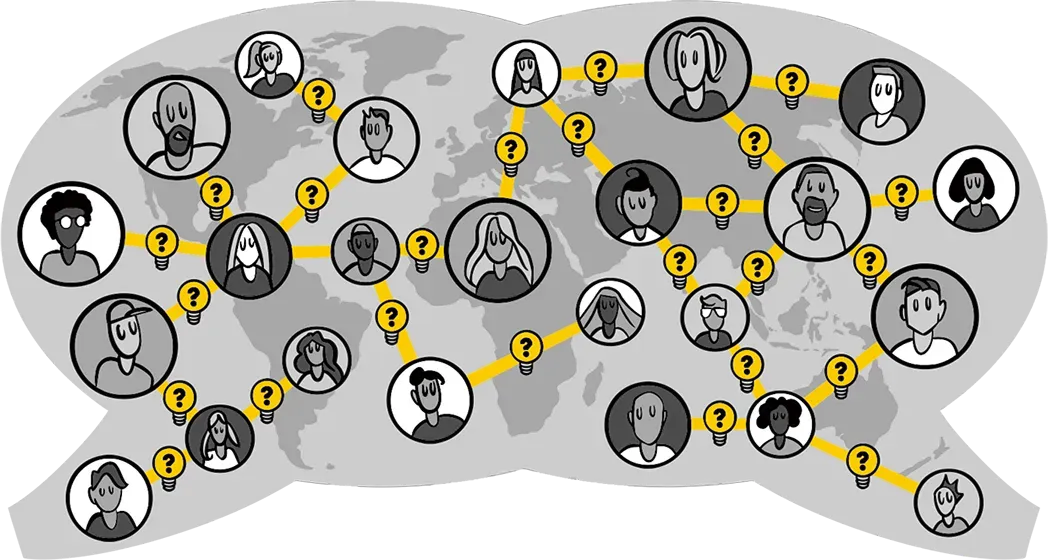Exploring Beliefs Without Conflict
Non-Confrontational Alternatives to Debate, Arguing, and Ridicule

How Street Epistemology Helps Navigate Beliefs Respectfully
Street Epistemology (SE) offers a thoughtful and constructive approach to exploring beliefs and ideas, moving away from debate, argumentation, and ridicule. Instead of confronting or dismissing others’ beliefs, SE promotes empathetic questioning, reflective dialogue, and collaborative exploration as tools for fostering mutual understanding.
In SE conversations, the goal is not to "win" the argument, but to encourage self-reflection and explore the foundations of beliefs in a non-hostile environment. SE tools allow individuals to challenge ideas respectfully, question assumptions without confrontation, and navigate difficult topics like religion, politics, and morality without escalating tensions.
Find the Best Fit for You
You've landed on a page about Street Epistemology, a way of helping people reflect on the quality of their reasoning through civil conversation. Take our free self-paced course called Navigating Beliefs or learn more about the organization behind these world changing projects.

Street Epistemology
International
The organization behind the development of the Navigating Beliefs course, supporting Street Epistemology's practice and offering resources for critical thinking and civil conversation.
Explore SE methods for respectful dialogue and belief exploration without conflict.

Applying Street Epistemology to Constructive Dialogue
Street Epistemology emphasizes collaboration over confrontation, allowing individuals to explore their beliefs without engaging in traditional debates. Whether discussing faith, politics, or personal values, SE encourages asking thoughtful, open-ended questions that prompt deeper reflection without creating defensiveness. This approach fosters a safe space where individuals can critically examine their beliefs without the pressure of arguing or being ridiculed.
Through SE, practitioners learn to navigate polarizing discussions with empathy and respect, focusing on understanding rather than winning. Techniques like reflective listening, respectful questioning, and collaborative belief exploration create opportunities for meaningful, non-confrontational exchanges that allow all parties to grow in their understanding.
Exercises for Reflective Dialogue and Collaborative Exploration
SE provides practical exercises that help individuals move beyond debates and arguments. These exercises include asking reflective questions, exploring beliefs collaboratively, and analyzing ideas without adopting a confrontational approach. By engaging in these activities, individuals can explore their own views and those of others with respect, empathy, and intellectual curiosity.
SE’s approach to dialogue encourages self-reflection and allows individuals to navigate difficult topics, such as religion, politics, and moral issues, without escalating conflict. These tools are especially useful for discussing sensitive topics with family, friends, or coworkers where emotions can run high and differences seem insurmountable.

Free Learning Course for Non-Confrontational Conversations
Ready to engage in constructive, respectful dialogue? The Navigating Beliefs course offers tools for exploring beliefs without debate or ridicule.
GO TO COURSE ➔



